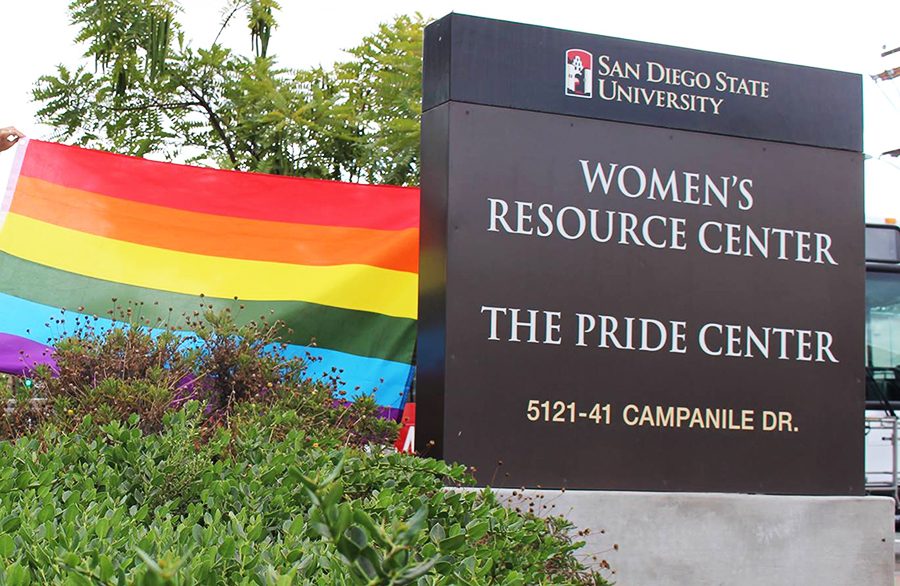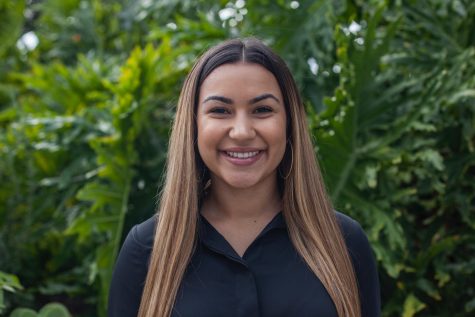San Diego State is ranked among the top 30 LGBTQ-friendly universities in the nation, according to The Campus Pride Index.
The Campus Pride Index is a tool used to set an example of safe and inclusive campuses for other universities. It ranks schools based on LGBTQ-inclusive policies, programs and practices.
SDSU has been on the list for the past seven years.
“The country has evolved, so has our campus,” Chief Diversity Officer, Aaron Bruce said. “We have spent a lot of time over the past ten years creating safe spaces and an entire campus community that is welcoming to the LGBTQ community.”
The Pride Center Coordinator Christopher Lujan said the commitment from faculty, staff and students to build an inclusive environment is crucial.
“The things that distinguish us are all policies that come from needs that students have voiced,” Lujan said. “Our campus administration does a good job at listening to those needs.”
LGBT Studies advisor Esther Rothblum said when she began teaching at SDSU there was a group of faculty that identified as LGBTQ who overtime started creating LGBTQ courses.
Rothblum said she put together the proposal for the LGBT Studies minor and the associate dean approved it.
At their annual meeting, faculty decided they had enough courses for a minor. As they added more classes they realized they had enough courses for a major too.
SDSU began offering its LGBT Studies minor in 2009, its major in 2012 and its graduate certificate in 2014.
It was the second university in the nation to offer an LGBT Studies major.
The university opened The Pride Center in spring 2014. It employs seven student workers and two graduate assistants.
Fourth year microbiology major Joseph Semmel said The Pride Center is the first space where students could go to feel safe and have resources openly available in one area.
“The Pride Center is home,” Emmanuel Istomin, senior film major and digital and social media assistant at the center said. “Most of my friends are here and it is a good place to come study, socialize and sometimes even take a nap.”
“We’ve been around for almost three years and people on campus still don’t know about The Pride Center,” he said. “People are starting to learn about us and the more they learn about us, the more they can do about it and the more changes that can happen on campus.”
Since 2007, SDSU has also been a home to SafeZones@SDSU which offers ally training, internships, social justice programming and continuing educational global outreach.
“The world is an ever-changing place,” Semmel said. “Individuals are becoming more open and out but people have to know how to deal with individuals who identify as LGBTQ+.”
Bruce said SDSU has trained over 1200 campus allies including counseling, health services and the SDSU police department.
Lujan said Health Services began offering pre-exposure prophylaxis and hormone replacement therapy this semester.
SDSU has also had a big push for gender-neutral restrooms, said Lujan.
“There are now 17 on campus,” he said. “We have three additional that will be added, two of which will be multi-stall restrooms.”
San Diego Pride, Big Queer BBQ, an annual flag raising, Transgender Week of Empowerment, Lavender Graduation and Welcome Week LGBTQIA reception are some of the annual events SDSU offers.
SDSU LGBT friendly organizations include the Queer Student Union, Gamma Pho Lambda, Delta Lambda Phi, Women’s Outreach Association, OUTreach, Queer People of Color Collective and Trans* Action and Advocacy Student Coalition Force.
“We are here and we are exactly like you,” Istomin said. “We just love differently.”
Istomin said that although the campus has come a long way in becoming LGBT friendly, it is not perfect.
“There are still some things that the campus can improve on,” Semmel said. “It is so important that when you see something, say something.”
The entrance flag in front of the Pride Center went missing last week during the center’s open hours. Someone walking into the Women’s Resource Center witnessed the suspects take the flag, according to Istomin.
He said that the university can improve on addressing the issues of the LGBT community by providing training for faculty and staff.
“No matter where you’re at, there’s always things to improve on,” Istomin said.
“We’re on the top 30, but that doesn’t mean we still don’t have a lot of work to get done.”









